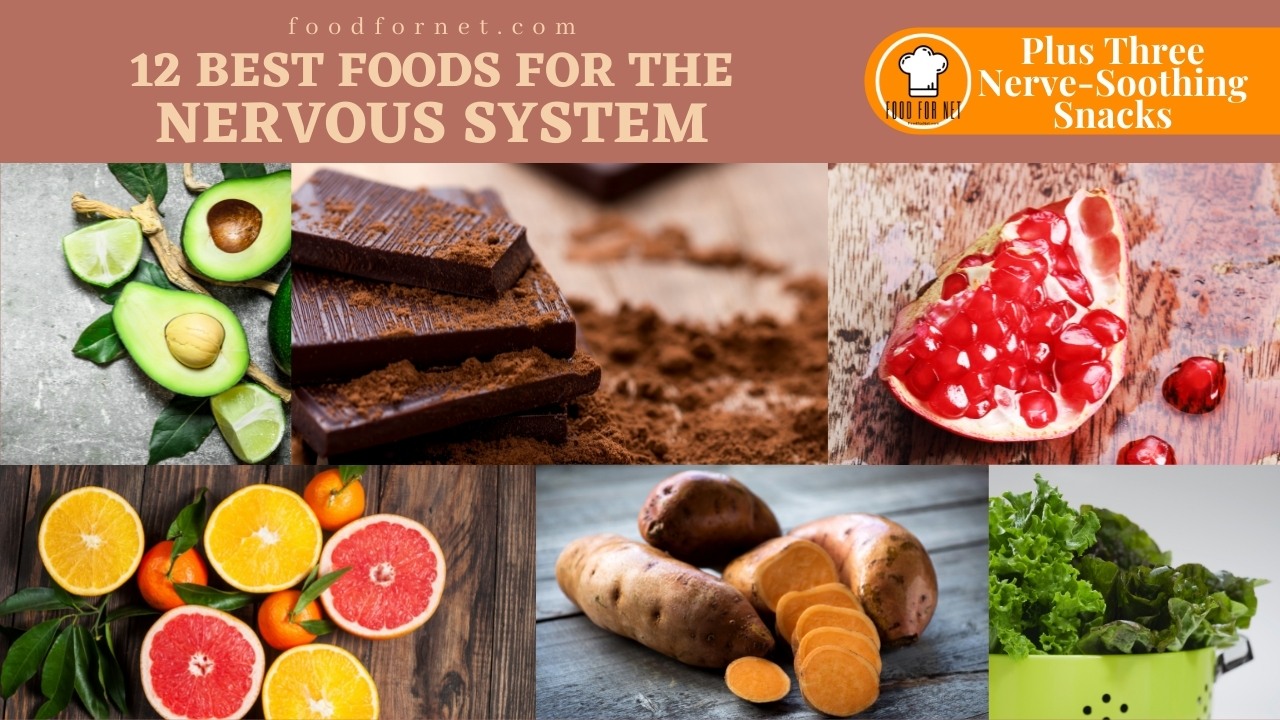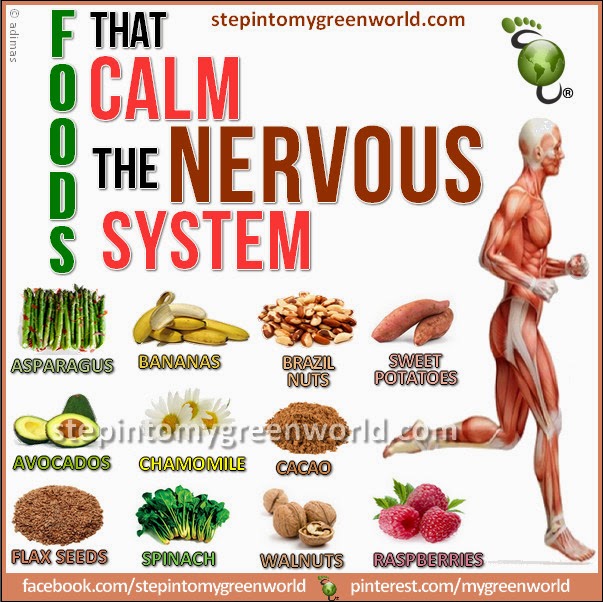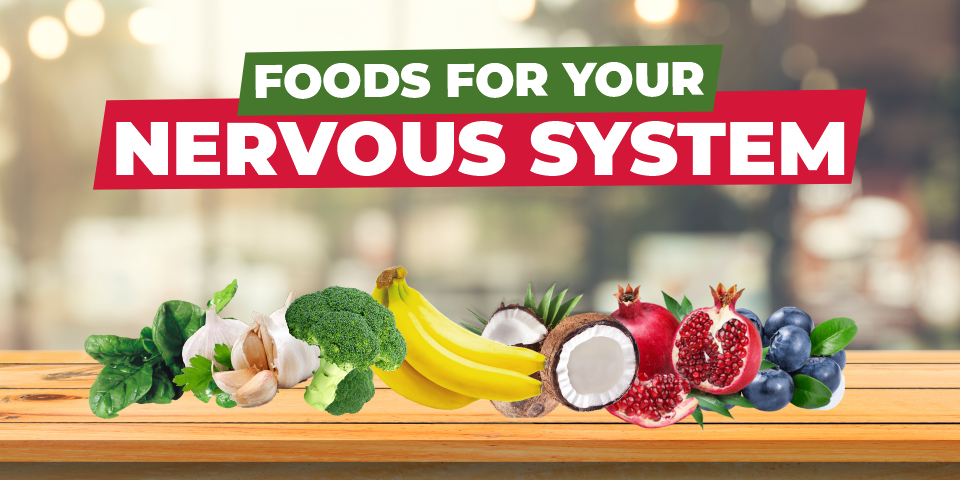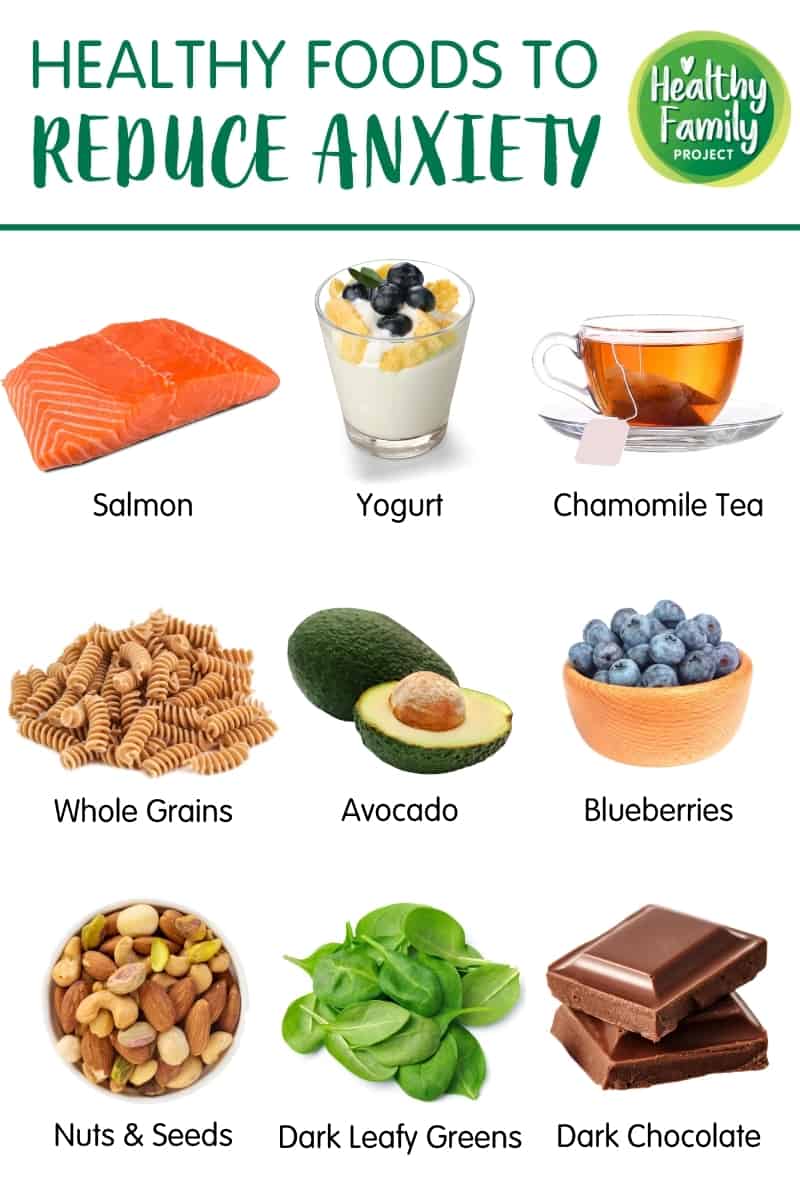What Food Is Good For Nerves

In our relentlessly fast-paced world, anxiety and stress have become unwelcome companions for many. The constant bombardment of information, the pressure to succeed, and the ever-present digital connection can leave our nerves frayed and our mental well-being compromised. While various coping mechanisms exist, the critical role of nutrition in supporting a healthy nervous system is often overlooked.
This article explores the fascinating link between food and nerve health, delving into specific nutrients and dietary patterns that can help soothe frayed nerves, reduce anxiety, and promote overall mental well-being. We will examine evidence-based recommendations from reputable organizations and scientific studies to provide a comprehensive guide to nourishing your nervous system through food.
The Gut-Brain Connection: Where Food Meets Mood
The gut-brain axis, a bidirectional communication pathway between the gut and the brain, is increasingly recognized as a key player in mental health. An imbalance in gut bacteria, often referred to as dysbiosis, can trigger inflammation and affect neurotransmitter production, impacting mood and anxiety levels.
Probiotics, beneficial bacteria found in fermented foods like yogurt, kefir, and sauerkraut, can help restore a healthy gut microbiome. Clinical trials have shown that probiotic supplementation can reduce symptoms of anxiety and depression in some individuals. Prebiotics, which are non-digestible fibers that feed beneficial bacteria, are also crucial for gut health. These are found in foods like onions, garlic, asparagus, and bananas.
A diet rich in fiber from fruits, vegetables, and whole grains also supports a healthy gut microbiome and promotes regular bowel movements, which can further alleviate stress and anxiety. Conversely, processed foods, high in sugar and unhealthy fats, can disrupt the gut microbiome and contribute to inflammation, potentially exacerbating nerve-related issues.
Key Nutrients for Nerve Health
Several specific nutrients play vital roles in supporting the healthy functioning of the nervous system. Deficiencies in these nutrients can lead to a range of neurological and psychological problems.
B Vitamins: The Nerve Protectors
B vitamins, particularly B12, B6, and folate (B9), are essential for nerve function and neurotransmitter synthesis. Vitamin B12 deficiency, for example, can cause nerve damage, fatigue, and cognitive problems. Good sources of B12 include meat, poultry, fish, eggs, and fortified foods.
Vitamin B6 is involved in the production of serotonin, dopamine, and GABA, neurotransmitters that regulate mood and anxiety. Folate is crucial for brain development and function, and deficiency has been linked to depression. Leafy green vegetables, legumes, and fortified grains are excellent sources of folate.
Magnesium: The Relaxation Mineral
Magnesium is a mineral that plays a crucial role in nerve transmission and muscle relaxation. It helps regulate the stress hormone cortisol and promotes feelings of calmness. Deficiencies in magnesium have been linked to anxiety, irritability, and insomnia.
Foods rich in magnesium include leafy green vegetables, nuts, seeds, beans, and whole grains. Epsom salt baths (magnesium sulfate) can also be a good way to absorb magnesium through the skin.
Omega-3 Fatty Acids: The Brain Boosters
Omega-3 fatty acids, particularly EPA and DHA, are essential for brain health and function. They help reduce inflammation in the brain and support healthy cell membranes, which is critical for nerve transmission. Studies have shown that omega-3 fatty acid supplementation can reduce symptoms of anxiety and depression.
Oily fish like salmon, tuna, and mackerel are excellent sources of omega-3 fatty acids. Plant-based sources include flaxseeds, chia seeds, and walnuts.
Antioxidants: Protecting Against Oxidative Stress
Antioxidants protect the brain from damage caused by oxidative stress, which can contribute to neuroinflammation and anxiety. Foods rich in antioxidants include fruits, vegetables, and berries.
Specific antioxidants like vitamin C, vitamin E, and selenium can help protect nerve cells from damage. A diet rich in colorful fruits and vegetables provides a wide range of antioxidants to support nerve health.
Foods to Limit or Avoid
Certain foods can exacerbate anxiety and nerve-related problems. Limiting or avoiding these foods can significantly improve mental well-being.
Caffeine can stimulate the nervous system and increase anxiety. Alcohol, while initially providing a sense of relaxation, can disrupt sleep and worsen anxiety in the long run. Processed foods, high in sugar and unhealthy fats, can contribute to inflammation and disrupt the gut microbiome.
Artificial sweeteners, such as aspartame, have been linked to anxiety and mood disorders in some individuals. Limiting these substances is also advisable.
Creating a Nerve-Nourishing Diet
Building a diet that supports nerve health is not about restrictive dieting but rather about incorporating a variety of nutrient-rich foods. Focus on whole, unprocessed foods, including fruits, vegetables, whole grains, lean protein, and healthy fats.
Prioritize foods rich in B vitamins, magnesium, omega-3 fatty acids, and antioxidants. Incorporate fermented foods to support a healthy gut microbiome. Practice mindful eating, paying attention to your body's hunger and fullness cues.
Stay hydrated by drinking plenty of water throughout the day. Consider consulting with a registered dietitian or nutritionist to develop a personalized meal plan that meets your individual needs.
Looking Ahead: The Future of Nutritional Psychiatry
The field of nutritional psychiatry is rapidly evolving, with increasing research exploring the link between diet and mental health. Future studies will likely further refine our understanding of how specific nutrients and dietary patterns can impact nerve function and mental well-being.
Personalized nutrition, based on individual genetic and metabolic profiles, may become a more common approach to addressing nerve-related issues. In the meantime, embracing a whole-foods diet rich in nerve-supporting nutrients remains a powerful tool for promoting mental well-being and navigating the stresses of modern life. By understanding the connection between food and our nerves, we can take proactive steps to nourish our bodies and minds for a healthier, more resilient future.


















